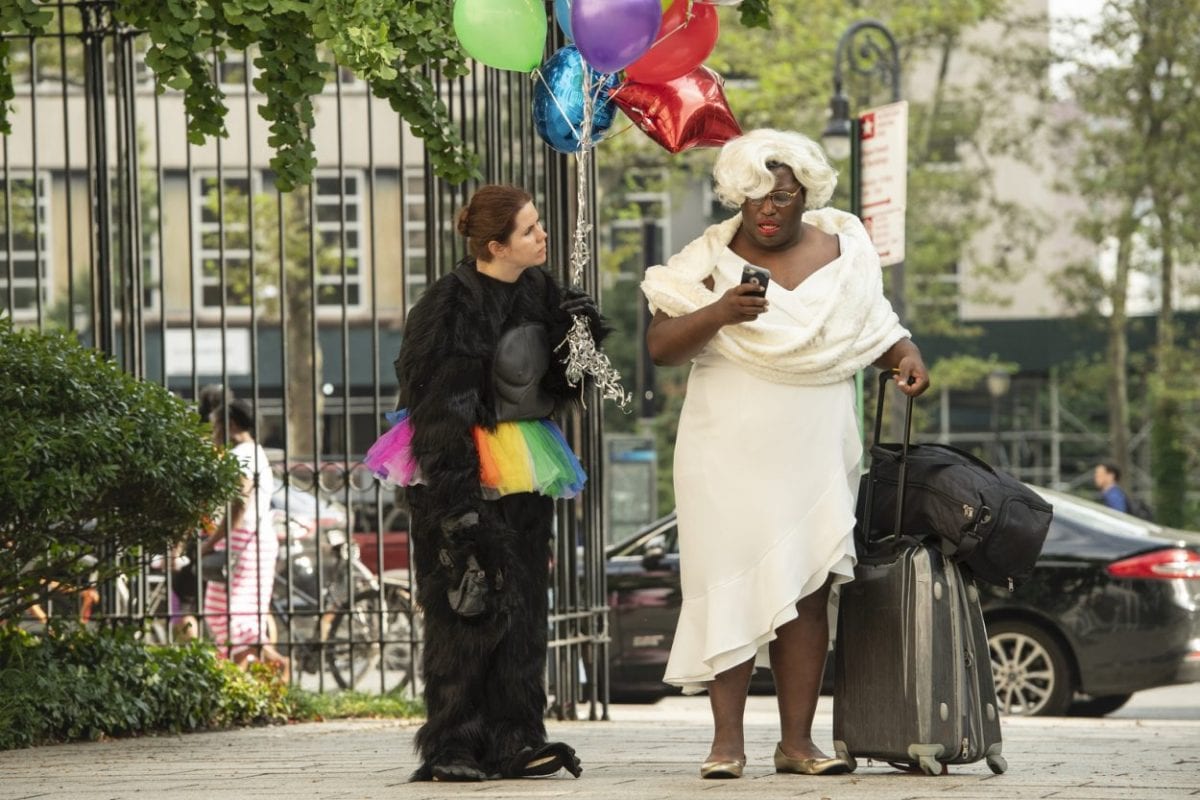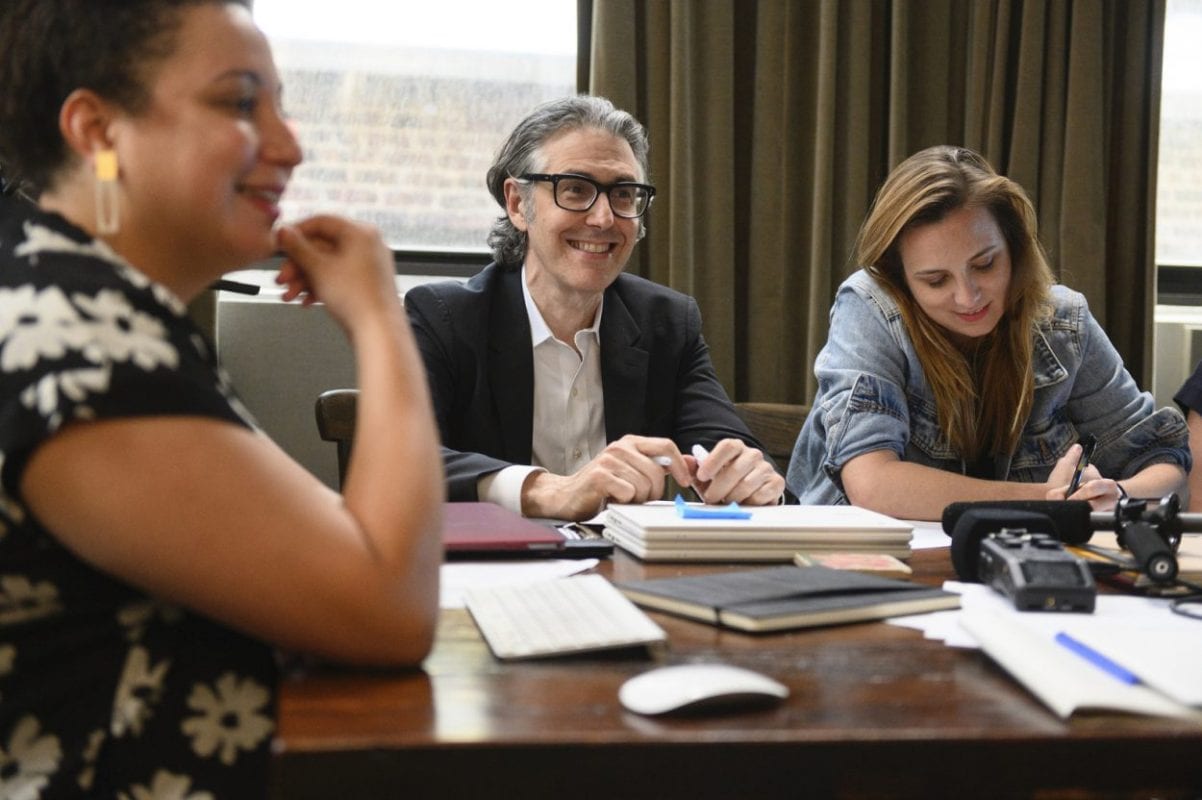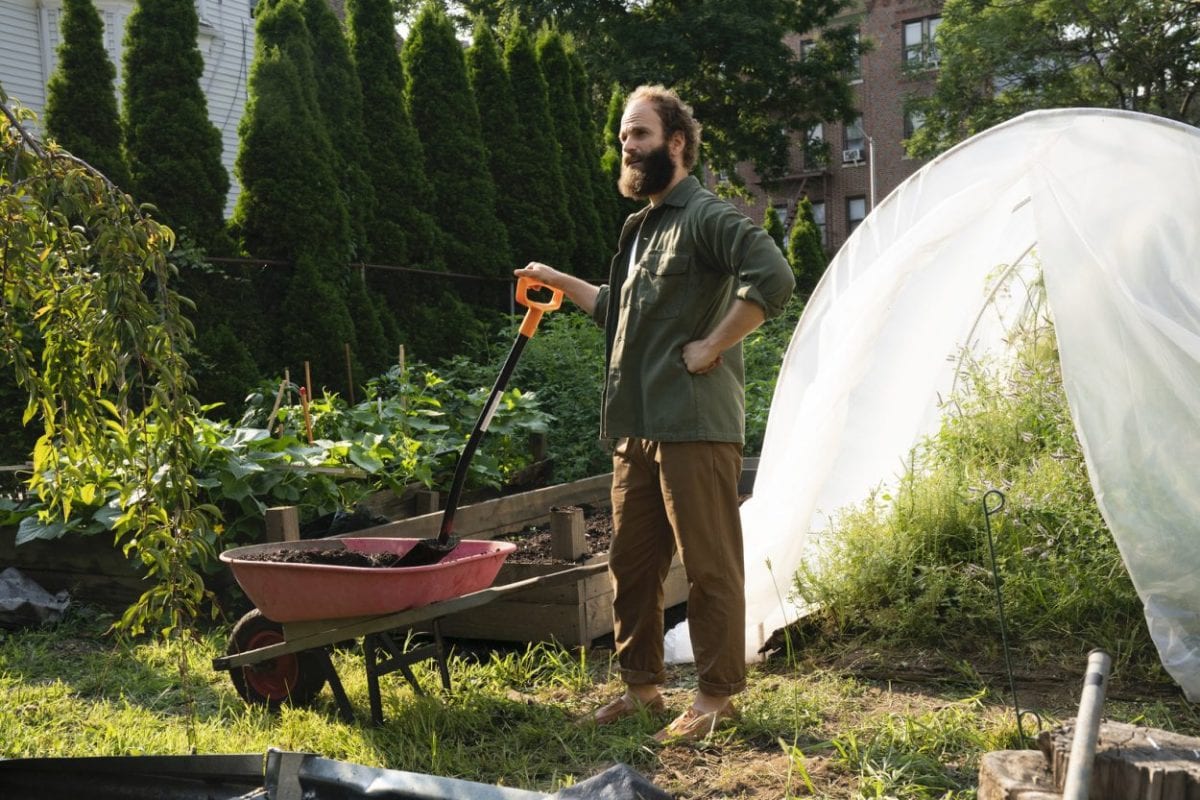High Maintenance returns for its fourth season on HBO with S4E1 “Cycles.” The episode is virtually a crossover with This American Life, which is interesting. High Maintenance has always been a quintessentially New York show. It can perhaps lay claim to portraying the city—particularly Brooklyn—better than anything else ever has.
I say this as someone who lives in Brooklyn (Bushwick, to be precise, which gets a nice shout-out in S4E1). I don’t know how much authority that gives me. It’s still just my opinion, but High Maintenance gets at the quirkiness of life in the city I have not seen elsewhere. People are strange, and while perhaps people are strange everywhere, there is a particular way in which the city provides opportunities to do things like try to dance for days without stopping. If that’s what you want to do…go for it, I guess?
The Guy (Ben Sinclair) is thus a perfect entry into the lives that High Maintenance gives us a glimpse of each week. He does not judge, and it’s not just because he wants to maintain his clients. In S4E1, for example, when he encounters Arnold (Larry Owens) performing his job as a singing telegram, he seems to genuinely enjoy his whole thing. The Guy appreciates the quirk of the city, and High Maintenance asks us to appreciate it right along with him.
Being a singing telegram performer for a living is a bit odd, and the kind of thing one could not do just anywhere. I don’t think you’d get a lot of work in Ohio. But in New York, there is opportunity. Not that this is what Arnold ultimately wants to be doing, necessarily—as he tells Ira Glass towards the end of the episode, he just wants to perform, and this is a chance to do that. So he’ll sing a song to your cheating boyfriend about how you threw his stuff out the window, e.g., and then ask for a tip. And, as we see as S4E1 gives us this glimpse into his life, he works his ass off.

High Maintenance has always had an interesting way of telling a story. The original web series, in particular, tended to offer small vignettes that introduced us to interesting people that The Guy delivered some weed to. These often have a way of cutting off and providing little resolution. And that has continued as the series moved to a longer format on HBO, although things have gotten a bit more complex.
The crux of the thing remains the same, though. The Guy is the main character, but he doesn’t tend to be the protagonist. Instead, each episode focuses on someone else, or a set of other characters. Their stories may come together, as they do in S4E1, or barely touch one another through the intermediary of The Guy. Characters might recur, but this is a show that is driven not by plot so much as by theme. And sometimes that theme is hard to pin down—it’s just a slice of life that cuts off without clear resolution. Because that’s what life is like.
It’s not a set of neat stories where you get to know all of the outcomes. Our lives intersect with one another, often glancingly, and even with people you know the best, you’ll only ever know a small part of their story.
This is perhaps the most New York thing about High Maintenance. There are just so many people that in one way or another your life will bump up against. There was a woman sobbing on the train one night (you’re not a real New Yorker until you cry in public), and without thinking about it too much, I went and offered her my hand. She took it and squeezed, calming down a bit. What was she crying about? I have absolutely no idea.
Cycles
There is perhaps more of a theme and more coherence to High Maintenance S4E1 than there was to some of the previous episodes of the show. It’s there in the name: “Cycles.” On the one hand, that could refer to The Guy riding his bike as always, and we could lump in Ira Glass riding a bike as well, but this episode is not about bicycles. It about cycles, and recycling is the theme that the This American Life writing team lands on as they work on their show—not just the recycling (or lack thereof) of things like plastic, but recycling as theme relating to human relationships and the like.

Yara (Natalie Woolams-Torres), who is the one fictional member of that writing team, mentions that her parents lied to her about getting divorced but then got back together after her dad had an accident at her high school graduation. They want to make this a story for This American Life, but her parents aren’t into it. Her mom says, “No,” and this gets her thinking about why.
In the meantime, it’s her anniversary with her boyfriend, Owen (Marcus Raye Pérez). He’s bought her a dress that she already owns, but he’s a sweet guy. Instead of going out, they order weed from The Guy and then get food in (another very NY thing—being able to order pretty much anything and not just pizza).
Yara realizes that her mother didn’t want to get back together with her father but felt that she had to take care of him because of the expectations placed on her as a woman. If she’d left him then—after his nasty fall—people would have looked down on her and maybe hated her (including Yara herself). And this gets Yara thinking about how those pressures exert themselves on her as well.
Of course, she’s also picked up her equipment and started recording.
She has a point. As far as we’ve come, it remains the case that women are expected to be caregivers. A career woman who drops her child off at daycare might face negative judgments that a man wouldn’t. And for a woman to decide she doesn’t want kids? I can only imagine given the questions I have been asked as a childless man approaching 40.
Owen doesn’t necessarily understand what she is trying to say well (perhaps because they are both stoned), and he points out how different Yara is from her mother. And she is, but that doesn’t mean she hasn’t felt those pressures. It’s when she tries to express how Owen isn’t like her father, though, that things take a turn for the worse. We know what she’s trying to say—or, at least, I did: he’s not the kind of man who expects her to take care of him and forgo her ambitions for the sake of his, and so on. But what he hears is her calling into question his masculinity.
Ouch.
She didn’t get him anything for their anniversary. She may have even forgot. And thus he storms out of their apartment.
Recycles
Meanwhile, The Guy has adopted a one-eyed dog he found on the street (who is super sweet), and he has been working at a compost yard.
At one point he gets a call about the dog, but we don’t hear the other end. My inference is that her owner died, or something like that, and there is no one else to take her in. Thus there is the cycle of the human and the dog repeating itself. Perhaps this is a different human, but this dog knows how to make you love her.
At the compost yard, Chick (Roma Maffia) tells The Guy about the old compost guru, Ernie, who collapsed dead one day as he came back with some coffee grounds. Don’t worry, though, he was happy to become compost. He’s all over the yard. He asks her if she is joking, and she ultimately says she is, but…
I am pretty sure she is not.
But why not compost the dead? Why pump them with formaldehyde to preserve the corpses in coffins we put into the ground? I know we tend to think we should respect the corpse, but isn’t this against nature, to try to keep the flesh from decaying and maintain the form of the body?
Throw me in the ground and plant a tree on top. That’s a cycle. That’s recycling.

The culmination of High Maintenance S4E1 occurs as Yara takes her story (and recording) back to the This American Life folks and they talk about whether it could work for their radio program. The long and short is no, insofar as there isn’t quite enough context to set things up, and they aren’t sure she could provide it.
But then Arnold arrives in a broken-heart costume. It’s a touching moment that ties the whole thing together. Owen is sorry. The “break-up on tape” isn’t the end of the story. He and Yara get back together, and it’s Arnold that Ira Glass interviews for This American Life.
And then we get to see The Guy dance in a chicken outfit as the credits roll.

